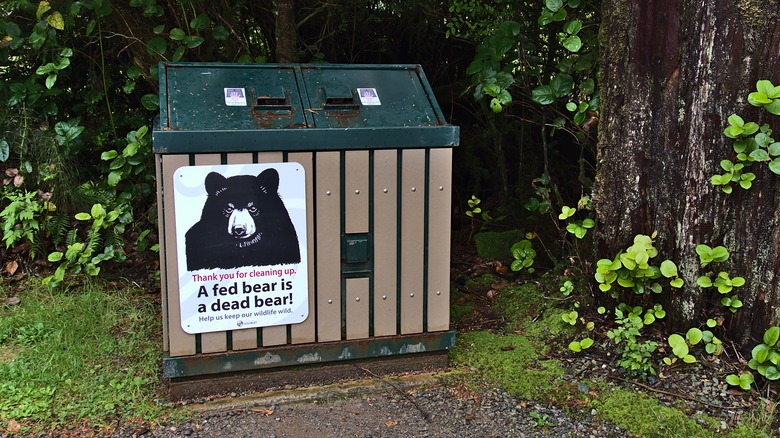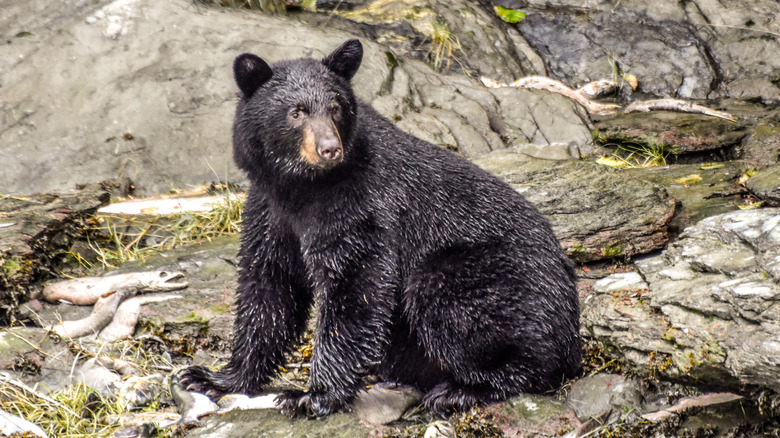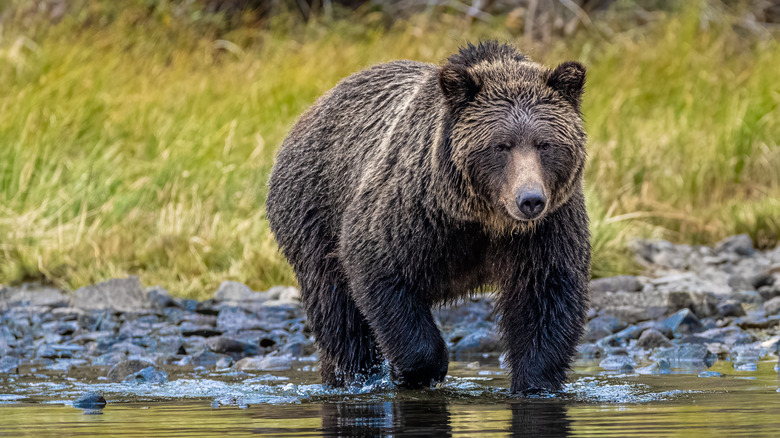Travel Guides Outdoor Adventures Camping
Laura Jones
Camping in bear country means getting to explore some of the world’s most beautiful and remote areas. But it comes with its own set of responsibilities. Bears have an incredible sense of smell and an insatiable appetite. If you’re going camping in bear country, it’s on you to make sure your food is packed safely because nothing smells better than an uncooked hot dog or a bunch of granola bars to a hungry bear.
Packing food correctly in bear country isn’t something you do only for your own safety. Have you heard the rather morbid adage “a fed bear is a dead bear?” Yup. If you carelessly leave food lying around, you’re risking the life of any bear that gets a whiff of your discarded hamburgers or the stick you used to toast marshmallows.
The National Parks Service (NPS) site lists several reasons why it’s so dangerous for bears to have access to human food. They include the fact that eating human food can cause bears to lose their fear of people, making dangerous encounters more likely, sometimes leading to the bear being euthanized. You don’t want that on your conscience.
Lock, stock, and bear-proof barrels

T. Schneider/Shutterstock
You can literally save a bear’s life by storing your food correctly while camping. There are many ways you can do this. If you’re camping with a hard-sided vehicle, the NPS suggests storing all food items inside. That includes cooking utensils, stoves, and anything else that will carry the divine scent of your leftover dinner.
In some parks, including Yosemite National Park, it is forbidden to leave anything with a scent in your vehicle overnight. You must use the bear-proof food lockers provided. Always check with local rangers about the regulations and recommendations when camping in bear country.
If you’re not camping with a vehicle, you’ll need to employ other methods. Many campgrounds where bears are known to roam will have food lockers, like in Yosemite. If you’re in the backcountry, you have two main options: using a bear-proof food container or suspending your bear attractants between trees. If using a container, the NPS states it should be at least 100 feet away from where you’re sleeping. For those who plan to hang their food, Parks Canada advises hanging it 13 feet off the ground and at least one 3 feet from the tree trunks.
Be bear aware

Cweimer4/Getty Images
One man’s trash is another bear’s treasure. Seriously. That candy bar wrapper you left lying on the picnic table: bear caviar. It isn’t just food that you need to consider when camping in bear country. Parks Canada has a list of bear attractants that includes beverage containers, perfumed cosmetics, and wastewater from doing dishes. It’s extremely important to store or dispose of items correctly. Garbage and cosmetics go with your food, and wastewater is thrown away at a designated dump station. The NPS also warns against trying to burn leftover food or even teabags and coffee grounds on a campfire. The fires are not hot enough, and bears will still be able to sniff out any organic matter.
You should also cook away from your sleeping area and never cook inside your tent, as smells tend to linger. Parks Canada strongly suggests cooking at least 330 feet downwind of where you’re going to sleep. Finally, stay bear aware at all times: keep your camping area clean, don’t turn your back on your cooler or any food sitting on a bench, and report any bear encounters to rangers. Camping in bear country is a privilege not to be taken lightly.

